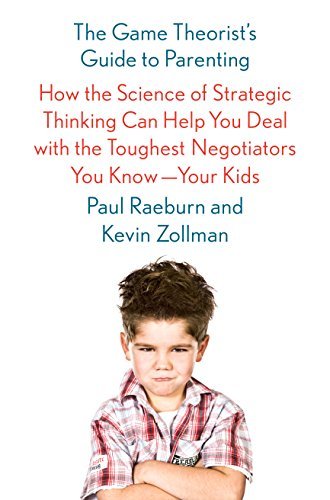What do you think?
Rate this book


242 pages, Kindle Edition
First published April 5, 2016
"In game theory, it serves you to be two-faced. Be everyone's friend 'til the moment you're not. Make them love you so much that when they're up against you, their own loyalty will act against their own self-interests. That's game theory.
A cold rational focus on winning, even if it's at everyone else's expense....In true game theory, everyone is a contingency. You meet people, you bring them into your life, you keep them percolating until the moment you need to manipulate the relationship to your advantage."
- Poseidon about Kaniel Outis | Prison Break, Season 5
Game theory is not about deception. It’s about being smart in dealings with other people—understanding how people are likely to behave, and devising a strategy that will produce the outcome we’re looking for.
All it takes is a little thought, a little economics, a little psychology—and a little practice. We’re talking about evidence-based parenting. Not fads, not guesses, not tricks. In the best of circumstances, you will create a win-win situation. Not only will you reduce conflict and encourage your children to do what they should, you will also be teaching them strategies for solving problems they will face long after leaving the family and starting out on their own. Game theory works.